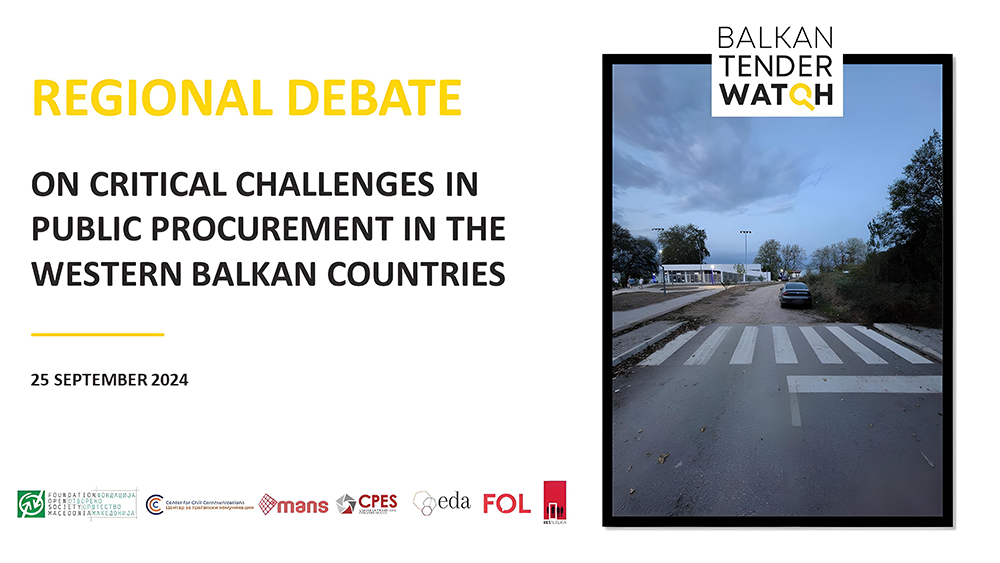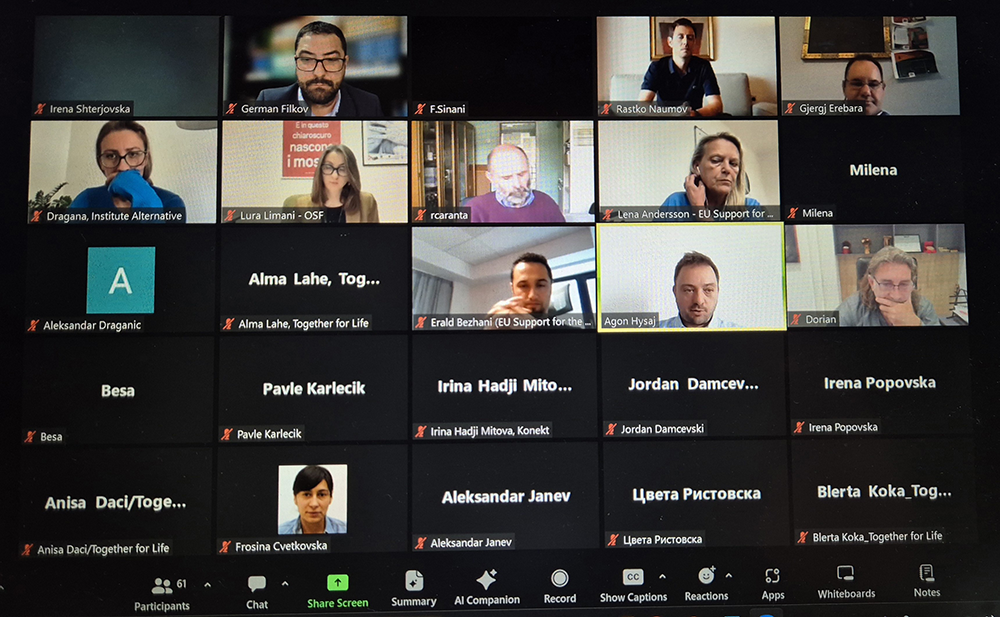
70 representatives of all relevant stakeholders, including government officials, civil society organizations, international partners, and the media gathered together on 25 September 2024 at Balkan Tender Watch’s annual regional debate on state of affairs in public procurement in the Western Balkan countries. Participants exchanged information and views on the latest developments, challenges, and recommendations that can contribute to combating corruption and improving public procurement.
“Despite the steady increase in public procurement value in the Western Balkans, competition in tenders has declined, highlighting ongoing challenges and recommendations”, concludes the annual comparative report of the BTW Coalition presented at the debate.

In 2023, public procurement in the Western Balkans accounts for over €14 billion annually. The share of public procurement in the region's GDP increased to 9.5%, up from 8.8% in 2022. Additionally, public procurement's share of budget expenditures also rose, averaging 27.7% in 2023. Competition in public procurement declined across most Western Balkan countries in 2023, except for Albania. The average number of bids per tender dropped from 2.92 to 2.81, and 38% of tenders regionally received only one bid.
Public procurement challenges identified by civil society organizations within the Balkan Tender Watch coalition highlights the most pressing issues in each country. The issue of deteriorating competition is particularly pronounced in Bosnia and Herzegovina, Serbia, and North Macedonia, where the number of bids per tender has been steadily declining over recent years. For Kosovo, the thematic report points to the risks associated with framework contracts based on unit prices, which create numerous opportunities for abuse. In Montenegro, the report emphasizes the limited capacity of relevant institutions to detect and address corruption and conflicts of interest in public procurement. Similarly, for Albania, the report addresses concerns surrounding lack of an effective system for prevention of corruption in public procurement.
The participants in the debate particularly emphasized the urgent need for greater and more comprehensive cooperation between all stakeholders in the public procurement system and in the fight against corruption. The role of the competent anti-corruption institutions, as well as the introduction and operation of an efficient system for fighting corruption and conflict of interests, was particularly emphasized. Also, a more significant involvement of the business sector is needed, directly and through their associations. Everywhere in the Western Balkans there is a lack of more and more frequent positive examples, either individual or institutional, as benchmarks to follow.



 Visit us on our
Visit us on our